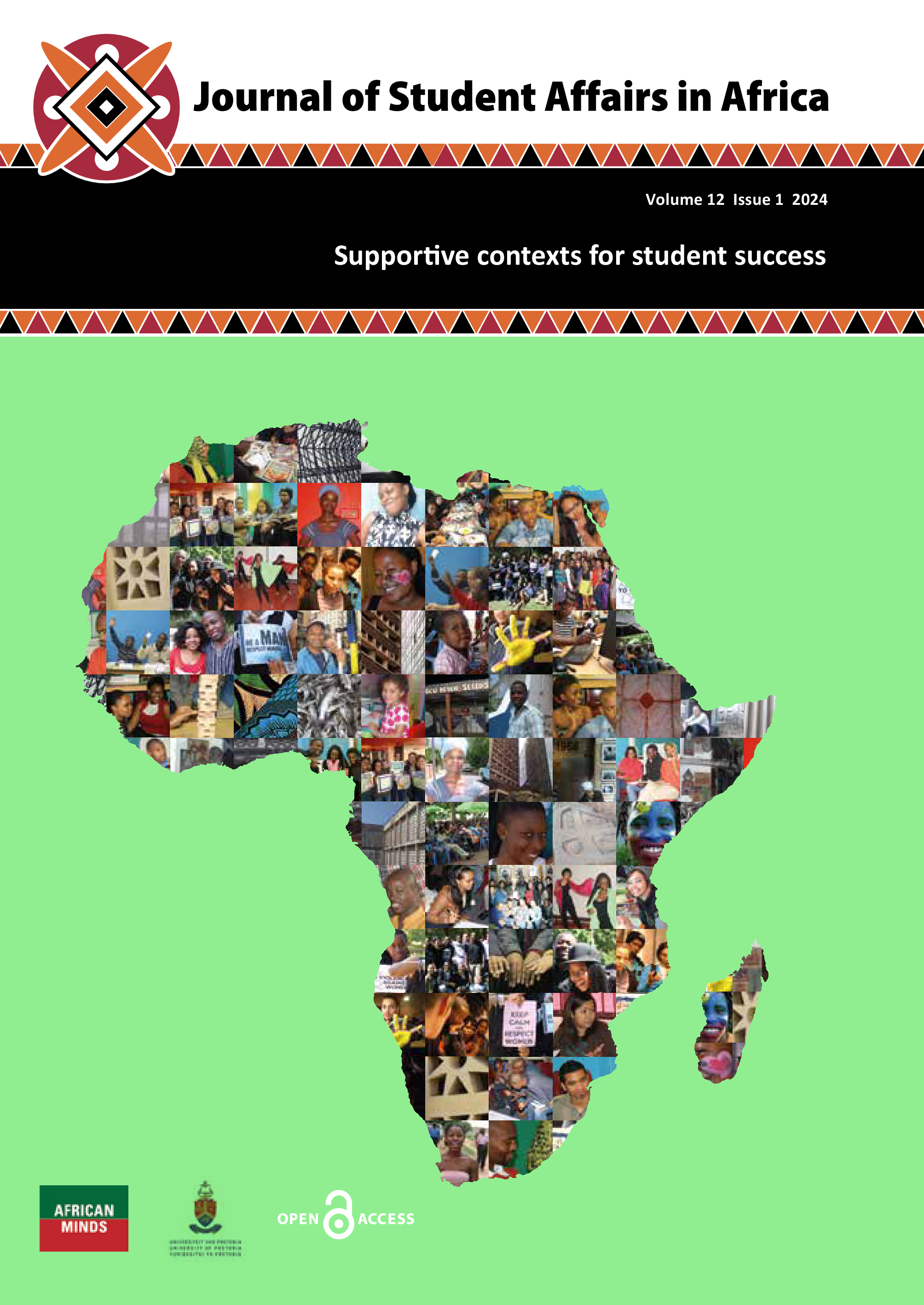Exploration of the procedures and practices for providing student support services in a nursing college in South Africa
DOI:
https://doi.org/10.24085/jsaa.v12i1.4651Keywords:
comprehensive student support, attrition, academic success, nursing education institution, psycho-social supportAbstract
The shortage of nurses is a global crisis, particularly in remote and rural communities. Contributory factors are retirements, resignations, recent increased deaths due to the COVID-19 pandemic, and the reduced production of nurses because of high attrition rates. This article’s purpose was to investigate the provision of student support in the nursing education institution (NEI) of the KwaZulu-Natal (KZN) province in South Africa and come up with a model to improve completion rates. The researchers intentionally selected three KZN campuses based on their demographical location and programme offerings for the study. For data collection through in-depth interviews, the study adopted a case study design and employed a qualitative explorative approach, purposely sampling the NEI’s senior academic staff. Strauss and Corbin’s stages of coding were used to conduct the data analysis. The findings suggest comprehensive orientation and academic support as strong measures applied by the NEI to provide student support services and highlighted a need to improve enabling resources. Psychosocial support was predominantly provided by the hospital, which implied a lack of on-site comprehensive support. A necessity for developing a comprehensive student support model for the NEI emerged from the study. The model is expected to enhance the support and, in turn, increase completion rates.
Downloads
Published
Issue
Section
License
Copyright (c) 2024 Thembekile Skakane; Ntombifikile Mtshali (Author); Sandiso Ngcobo

This work is licensed under a Creative Commons Attribution-NonCommercial-ShareAlike 4.0 International License.
Authors who publish with this journal agree to the following terms:
Authors retain copyright and grant the journal right of first publication with the work simultaneously licensed under the Creative Commons Attribution Share-alike 4.0 International License that allows others to share the work with an acknowledgement of the work's authorship and initial publication in this journal.
Authors are able to enter into separate, additional contractual arrangements for the non-exclusive distribution of the journal's published version of the work (e.g., post it to an institutional repository or publish it in a book), with an acknowledgement of its initial publication in this journal.
Authors are permitted and encouraged to post their work online (e.g., in institutional repositories or on their website) prior to and during the submission process, as it can lead to productive exchanges, as well as earlier and greater citation of published work (See: The Effect of Open Access).


